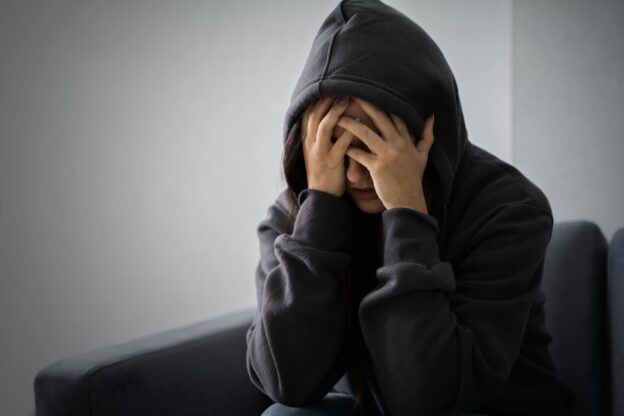Post Acute Withdrawal Syndrome
It can be tough enough to get help for addiction. The physical pain and discomfort of detox is not a picnic, but is usually over fairly quickly if monitored well by trained detox professionals. Long term stays at residential treatment facilities–usually around 30-90 days–can be long, lonely, but also a kind of a bubble of unreality, where meals are prepared for you by a chef and work, family, and general life stressors still seem pretty far away. Both of these are typically a necessary part of early recovery, depending on the substance abused, the length of time in addiction, and other factors. But then you go home, eager to get back into your new normal, and find yourself irritable, depressed, and apathetic, and you have no idea why. It seems like a cruel joke to finally get clean of all substances and then to, in some ways, feel worse than ever. Enter Post Acute Withdrawal Syndrome. We need to understand the symptoms of PAWS in early recovery.
So what is PAWS?
Post Acute Withdrawal Syndrome, or PAWS, does not happen for everyone. There are a lot of factors that can contribute to PAWS, such as the substance(s) that were used, the quantity and length of time in addiction, the overall health of the person in addiction including, nutrition, physical health, sleep issues, stress, and the presence of other mental health issues such as anxiety or depression. The symptoms can vary from mild to almost debilitating, and the lack of awareness around PAWS has led some people to relapse in a misguided attempt at finding relief.
The symptoms of PAWS
- Irritability
- Increased sensitivity to stress
- Sleep issues such as difficulty falling or staying asleep
- Low or depressed mood
- Feelings of anxiety or even panic
- Feelings of apathy or pessimism towards life or things that were generally enjoyable
- Obsessive-compulsive behaviors
- Difficulty maintaining social relationships
- Cravings for the originally abused substances
- Difficulty with cognitive tasks, such as learning, problem solving, or memory recall
Why does PAWS occur?
Scientists generally understand PAWS to originate from the brain chemistry changes that occur during active addiction. Substances create feelings within our bodies because they mimic neurochemicals that are already naturally produced by the brain and body. When we “outsource” these neurochemicals by using substances, these imposter chemicals throw our own delicate balance of chemicals out of whack, as well as damage the receptors that they bind to. In early recovery, our bodies are attempting to restore the balance of neurotransmitters such as dopamine, serotonin, and other neurochemicals, as well as repair any damage done to our physical body. This repair work consumes energy, nutrients, and makes a lot of demands on the body. Additionally, in active addiction we are typically not experiencing emotions or stress without the haze of substances, and our threshold for tolerating uncomfortable experiences can be at an all time low. So not only are we more irritable and more prone to stressing out, we tend to see things in our every day lives as more stressful and irritating.
Some good news
The good news is that that first and foremost, PAWS is a temporary condition, and that if you understand PAWS, you may be able to move through it more smoothly. While some individuals never experience PAWS, others experience it for as little as 1-2 weeks. Others experience it for as long as 6 months, but the point is, it absolutely will end. There are also things you can do to help manage the symptoms of stress and move through it a bit more smoothly, such as therapy and short term, non habit forming medications to help with sleep issues. Getting proper nutrition, sleep, and exercise regularly are essential during early recovery, for PAWS as well as just recovery in general. You can also adopt healthy habits such as journaling when you’re feeling low, identifying things you can do to support wellness, and interrupting unhealthy thought cycles by doing something different such as cranking up your favorite music, going for a walk, or talking to a friend. Acknowledge that it happens, and that it is a part of the recovery process, which means you are heading in the right direction!
If you or a loved one in the Alpharetta, Roswell, John’s Creek, Milton, or surrounding areas needs help with addiction, early recovery, or the symptoms of PAWS, please reach out to Centered, which is the best outpatient addiction treatment facility in North Georgia. With hundreds of reviews from real clients, Centered is creating a healthier North Georgia, one client at a time.






